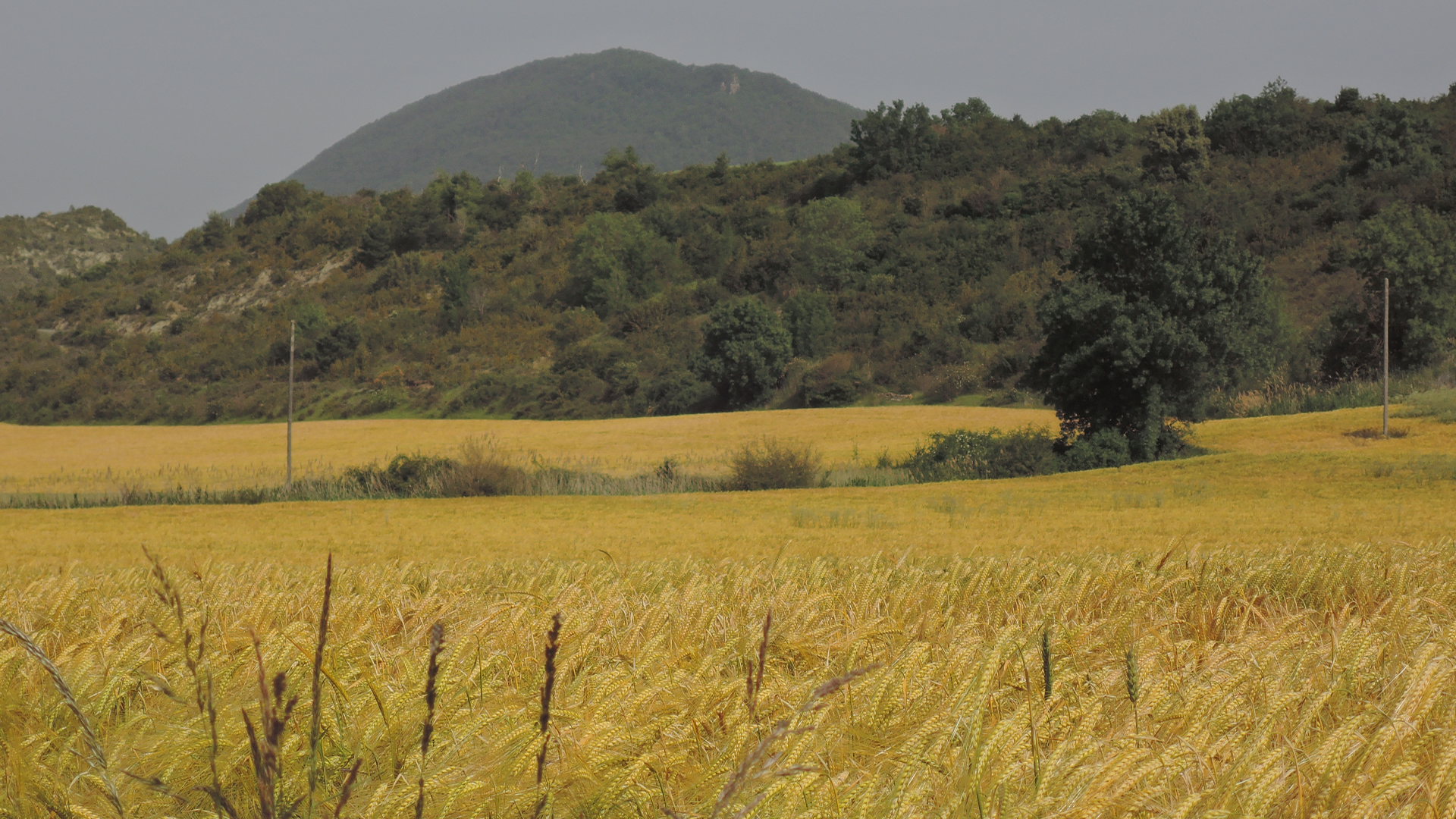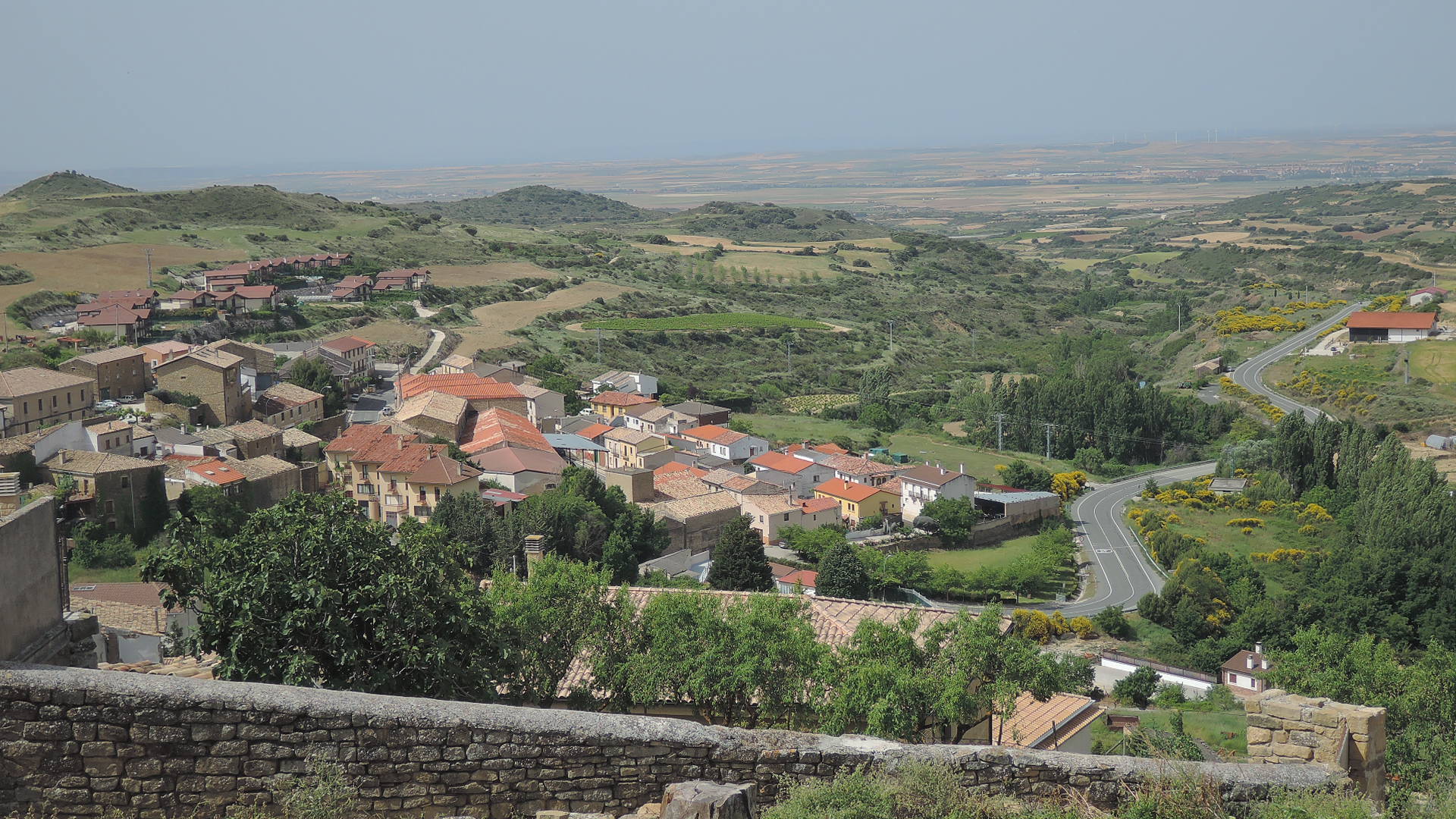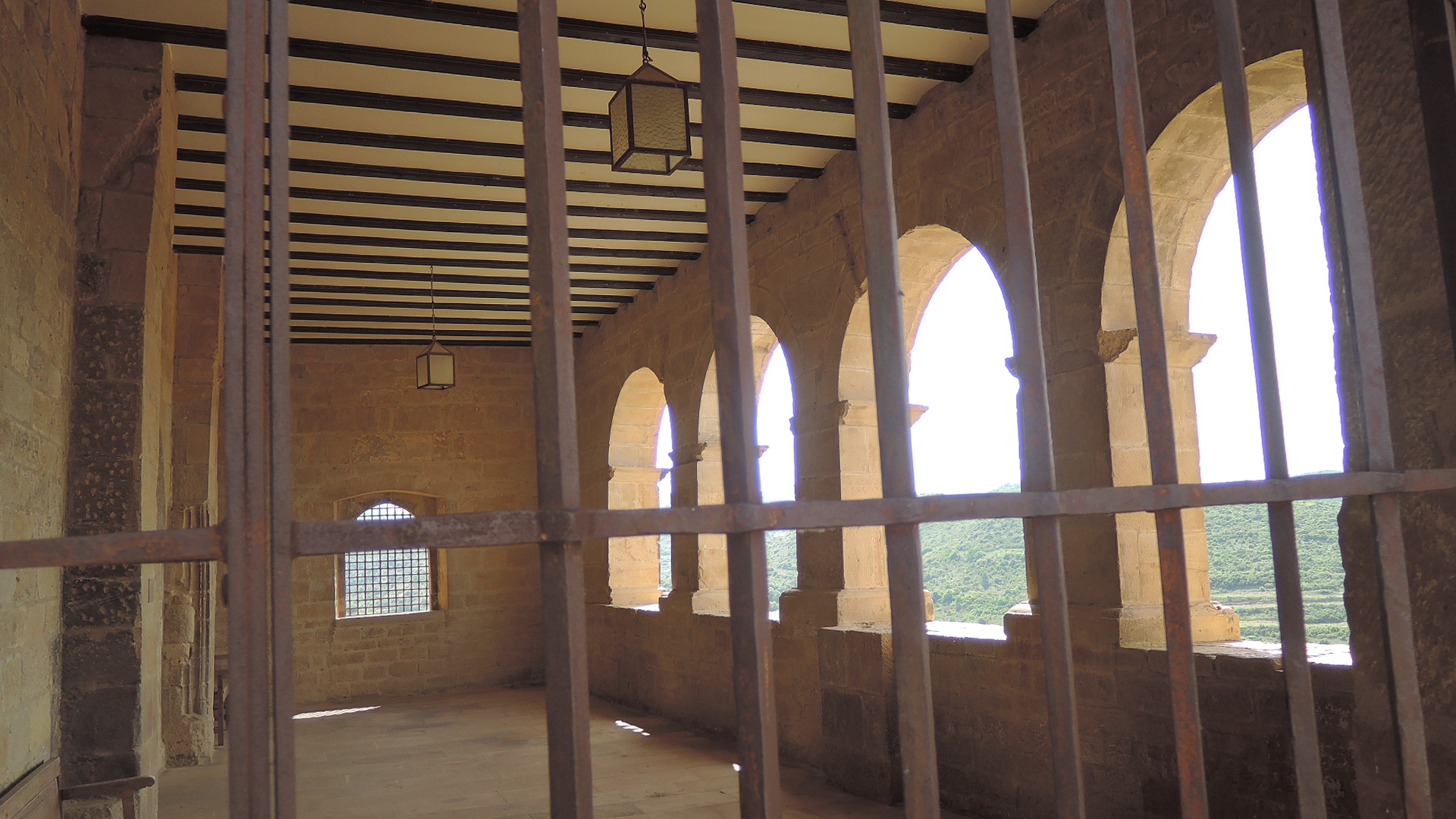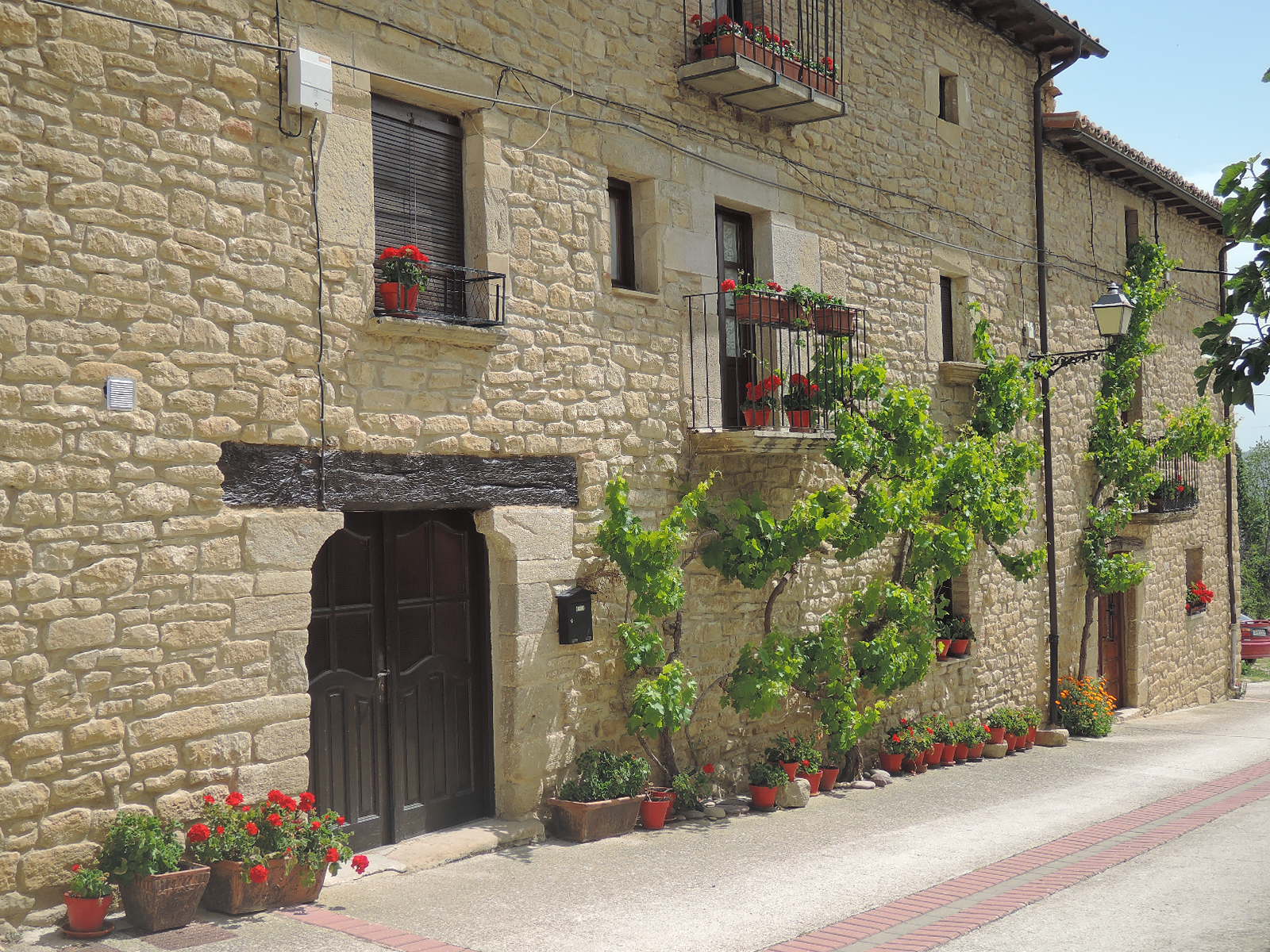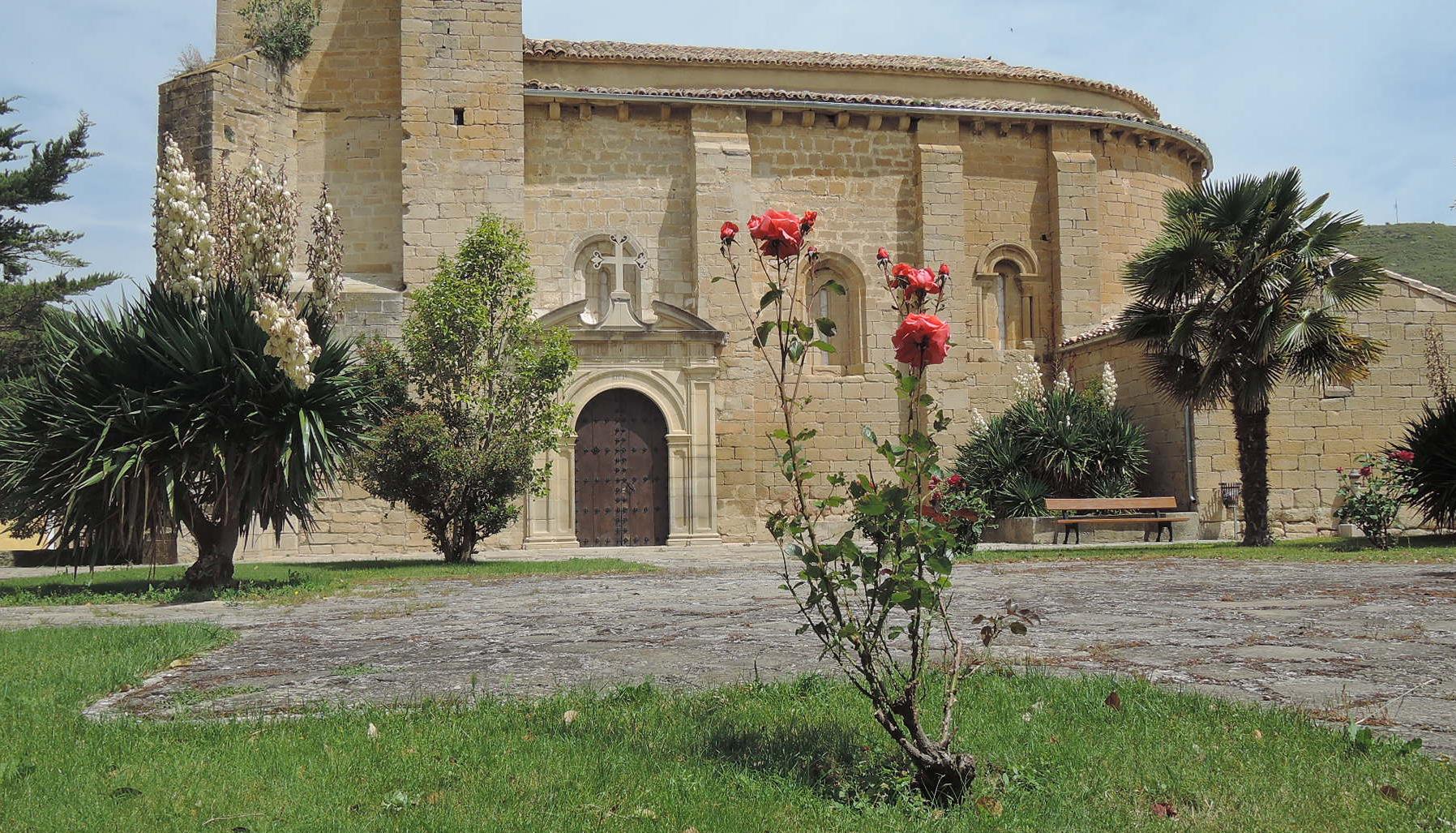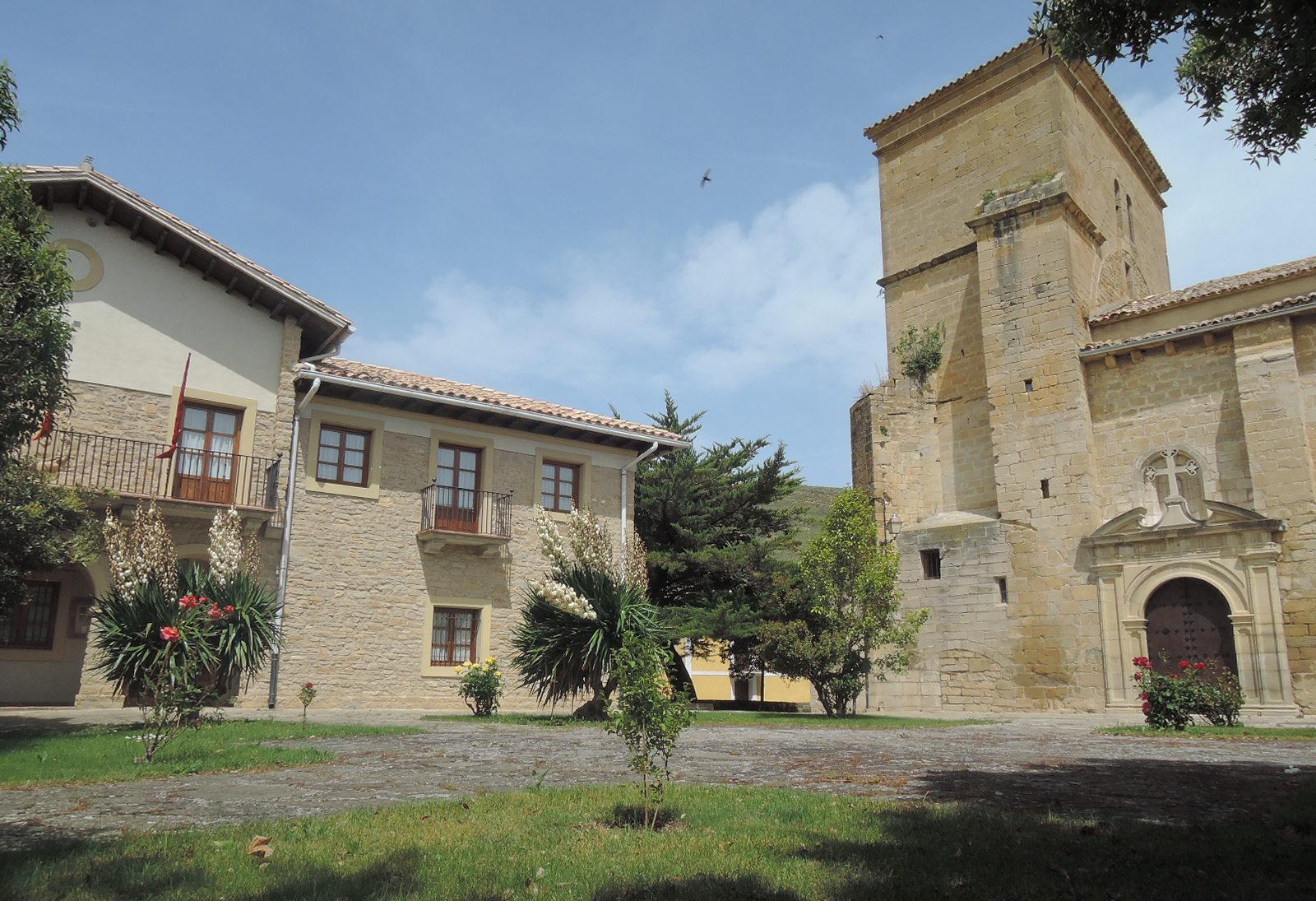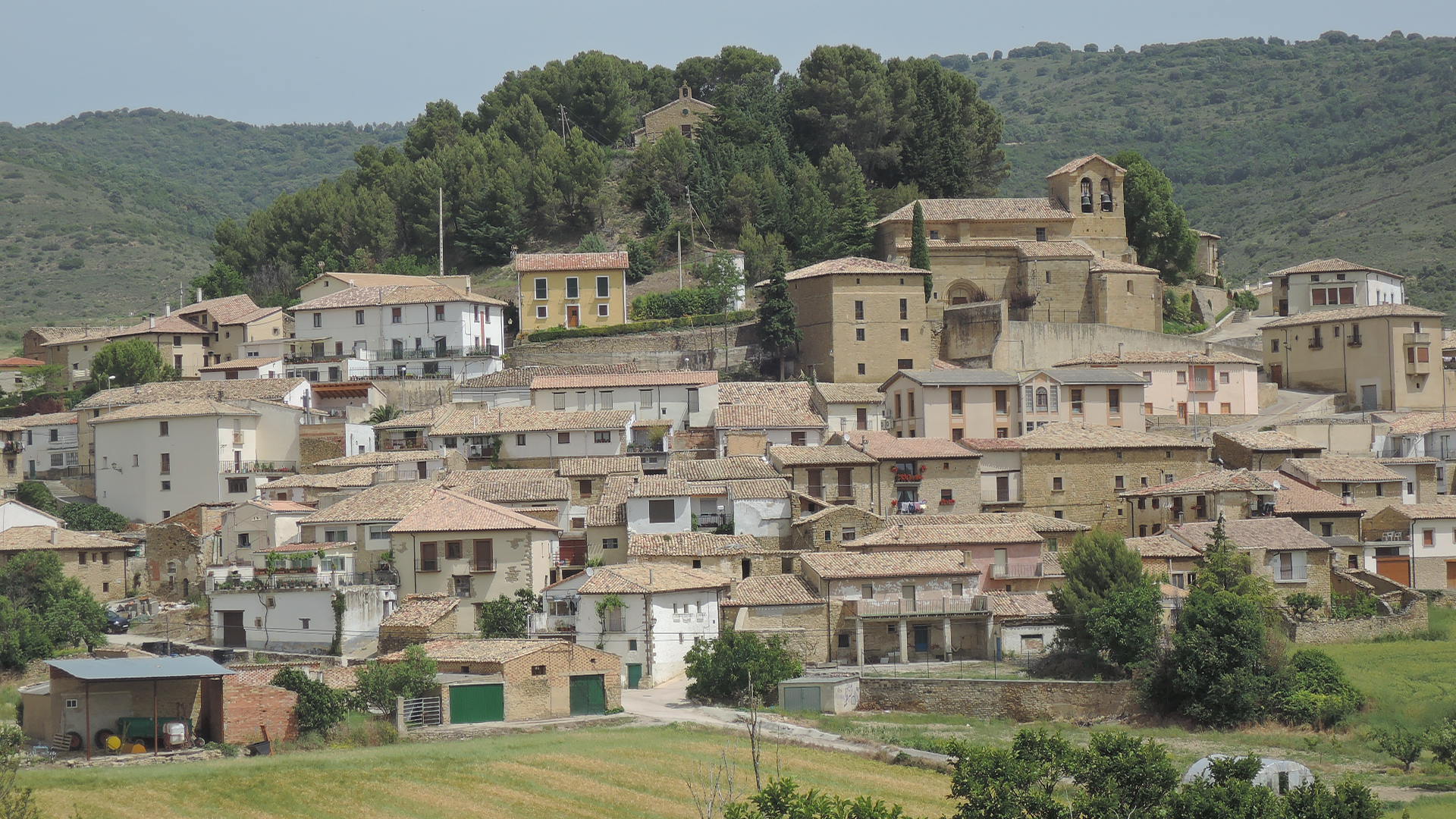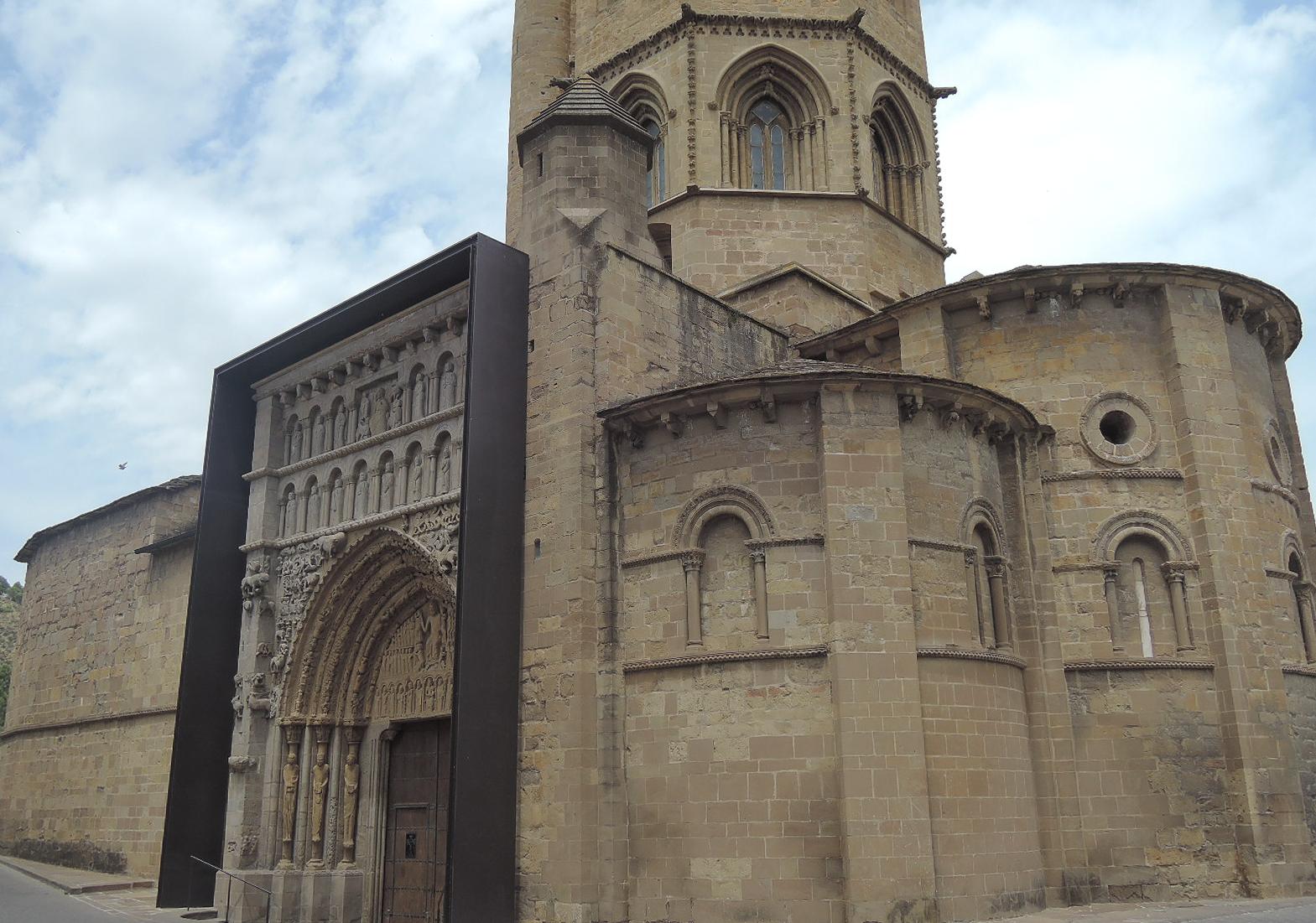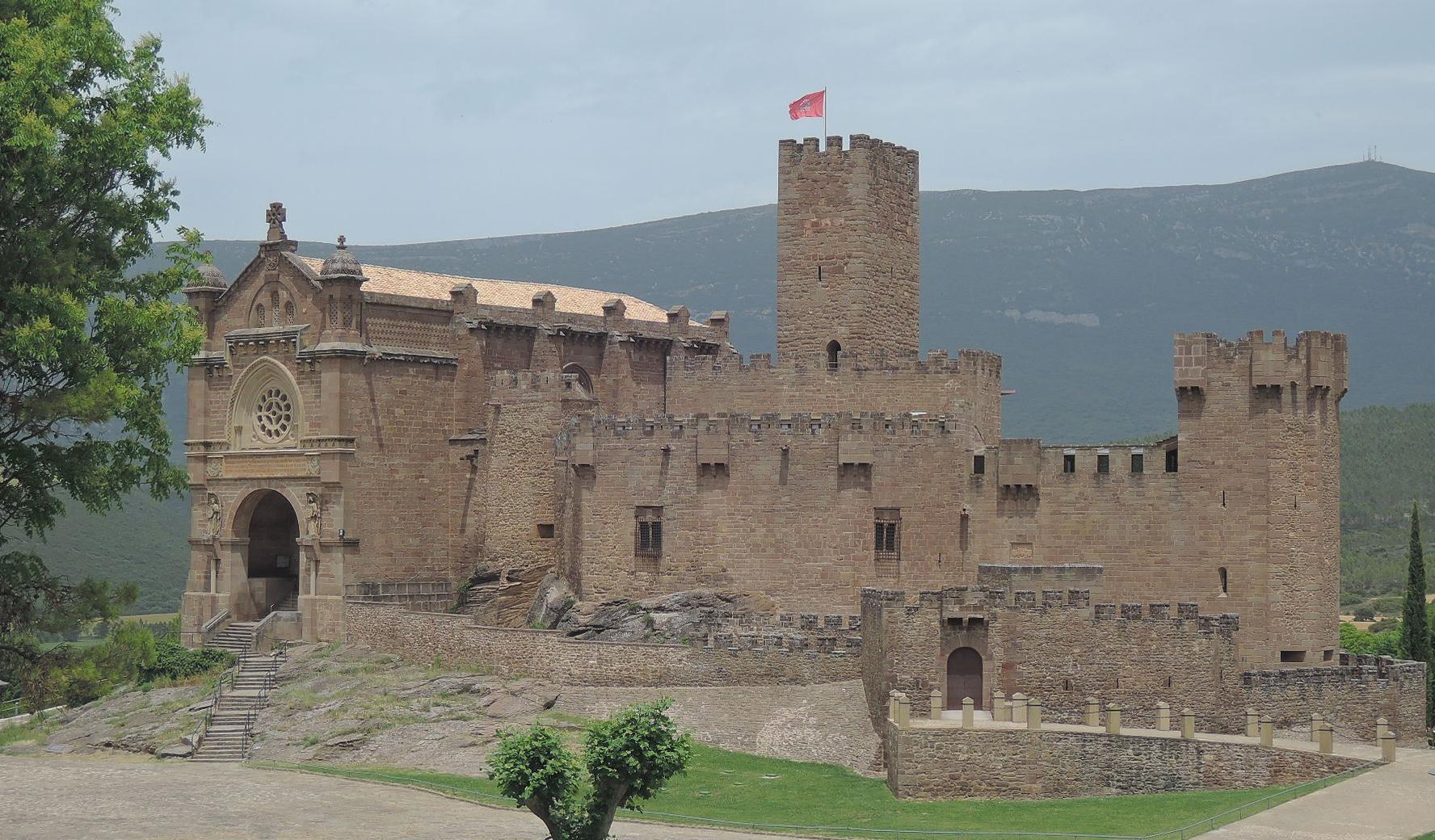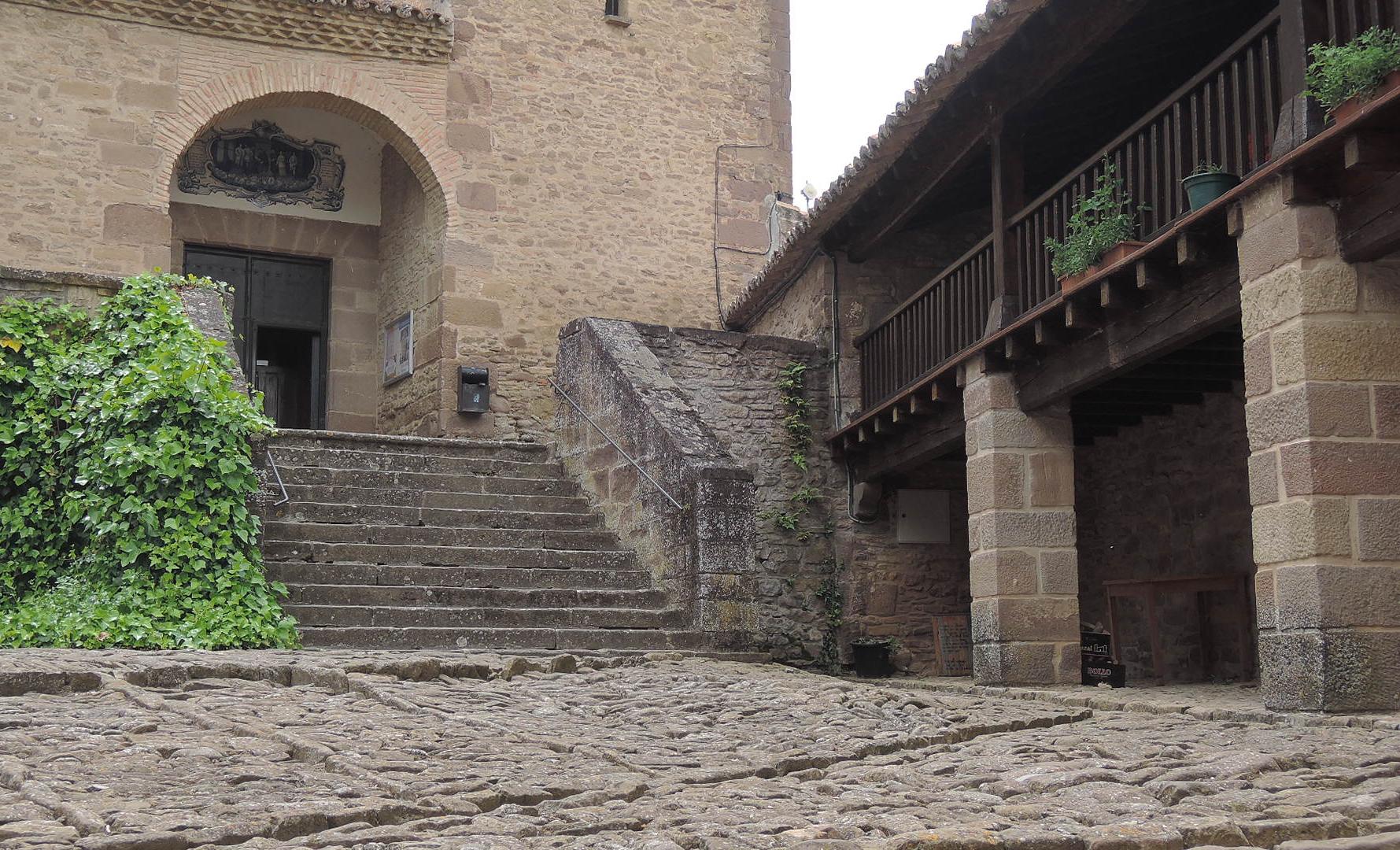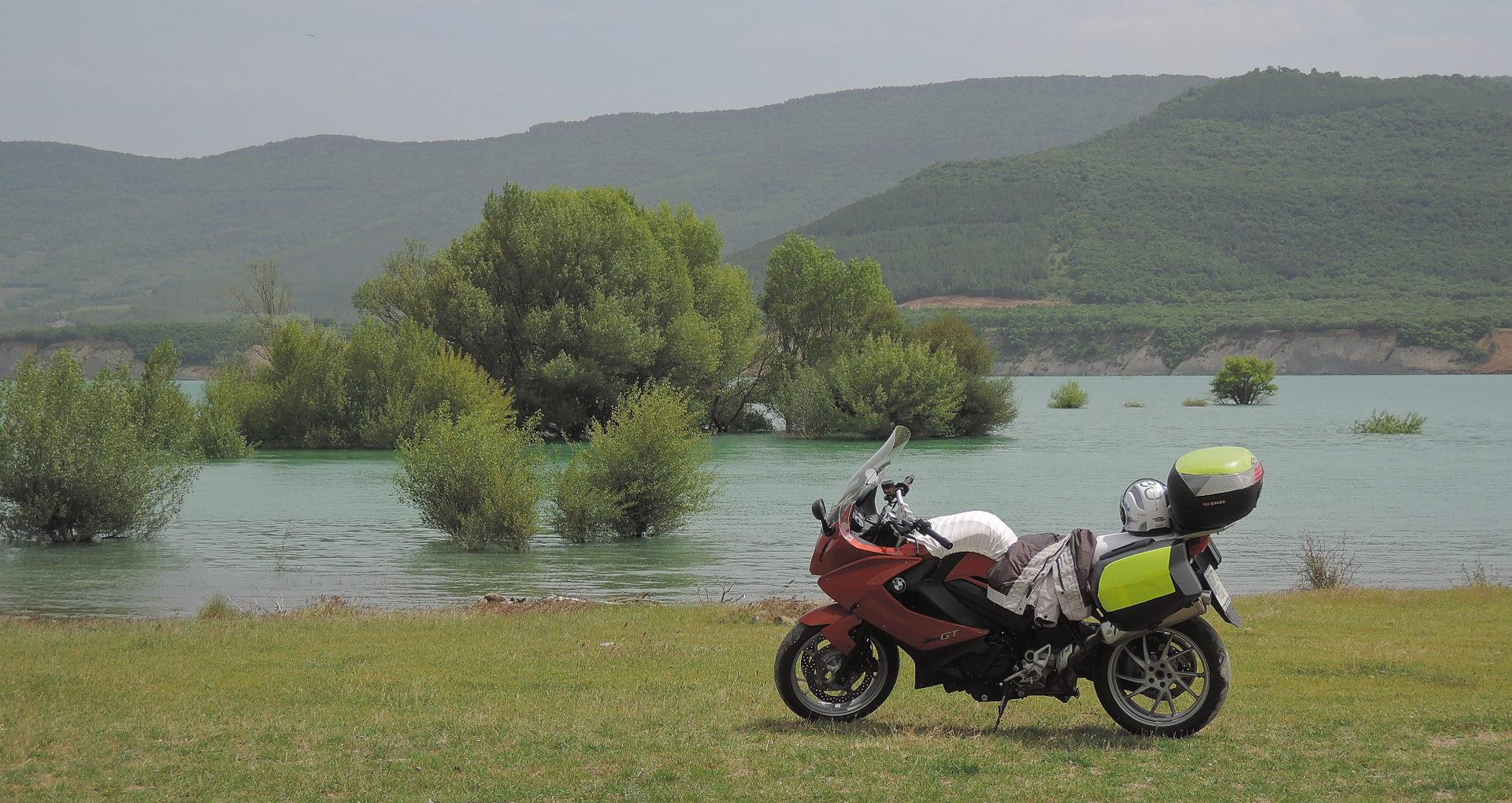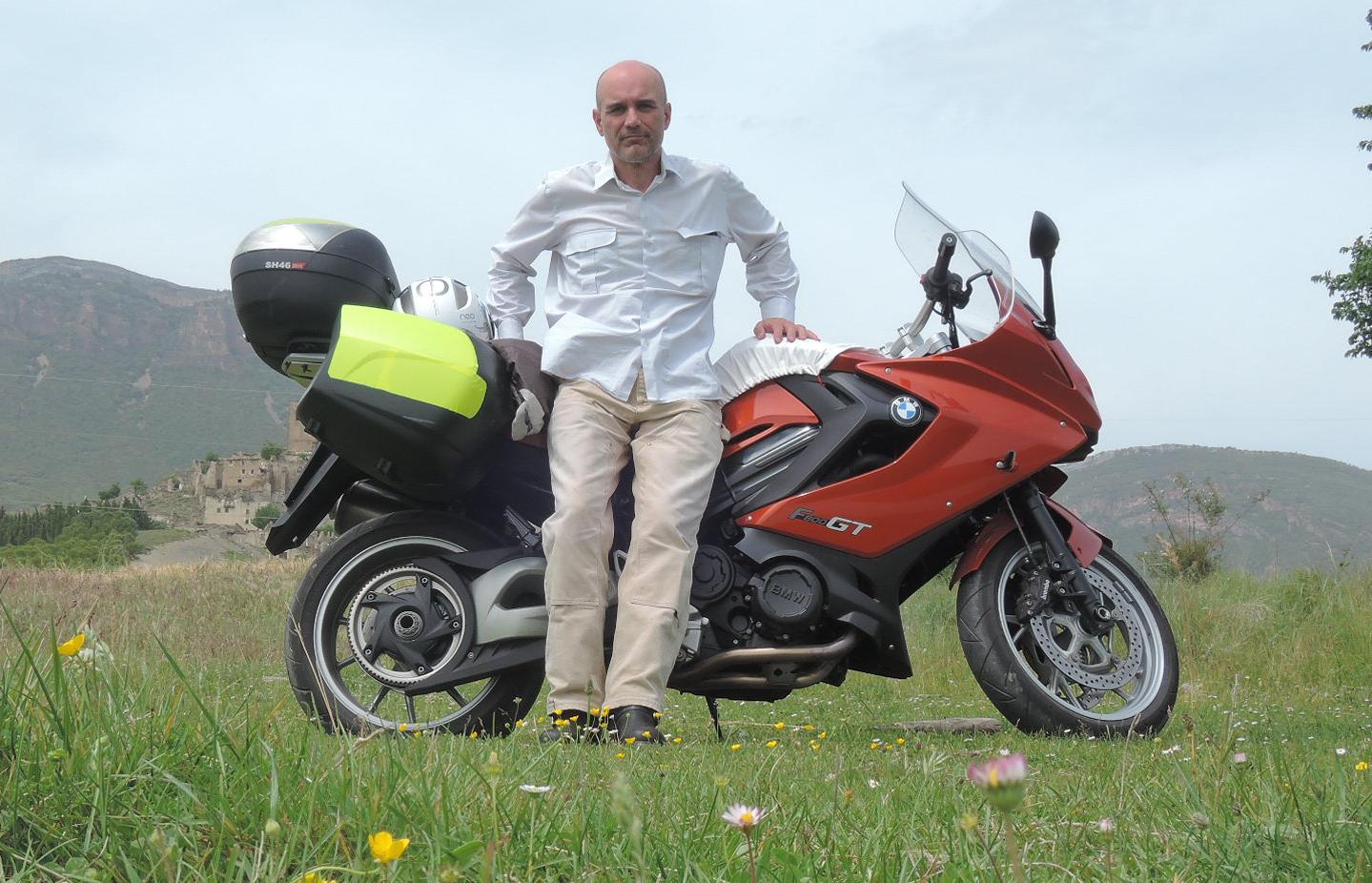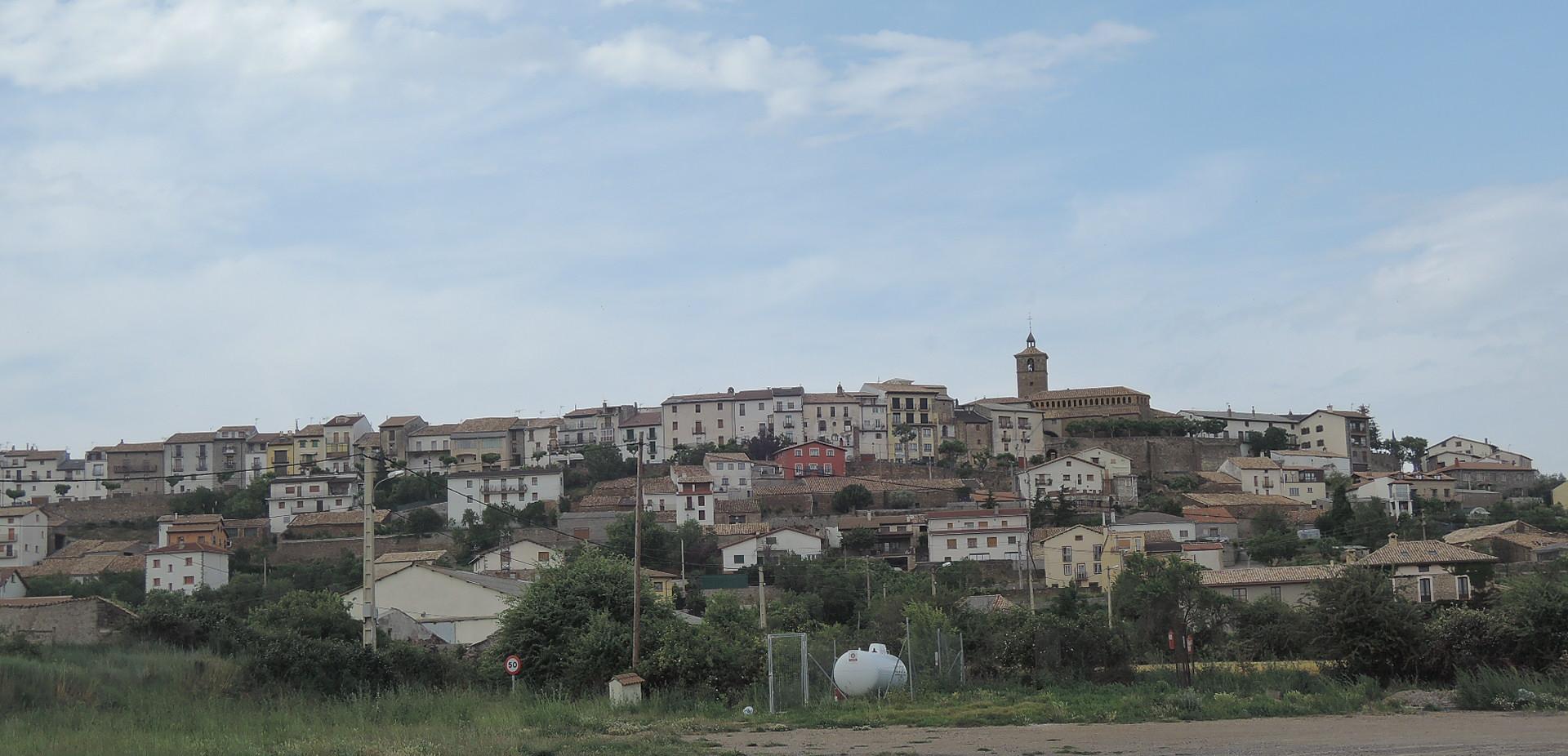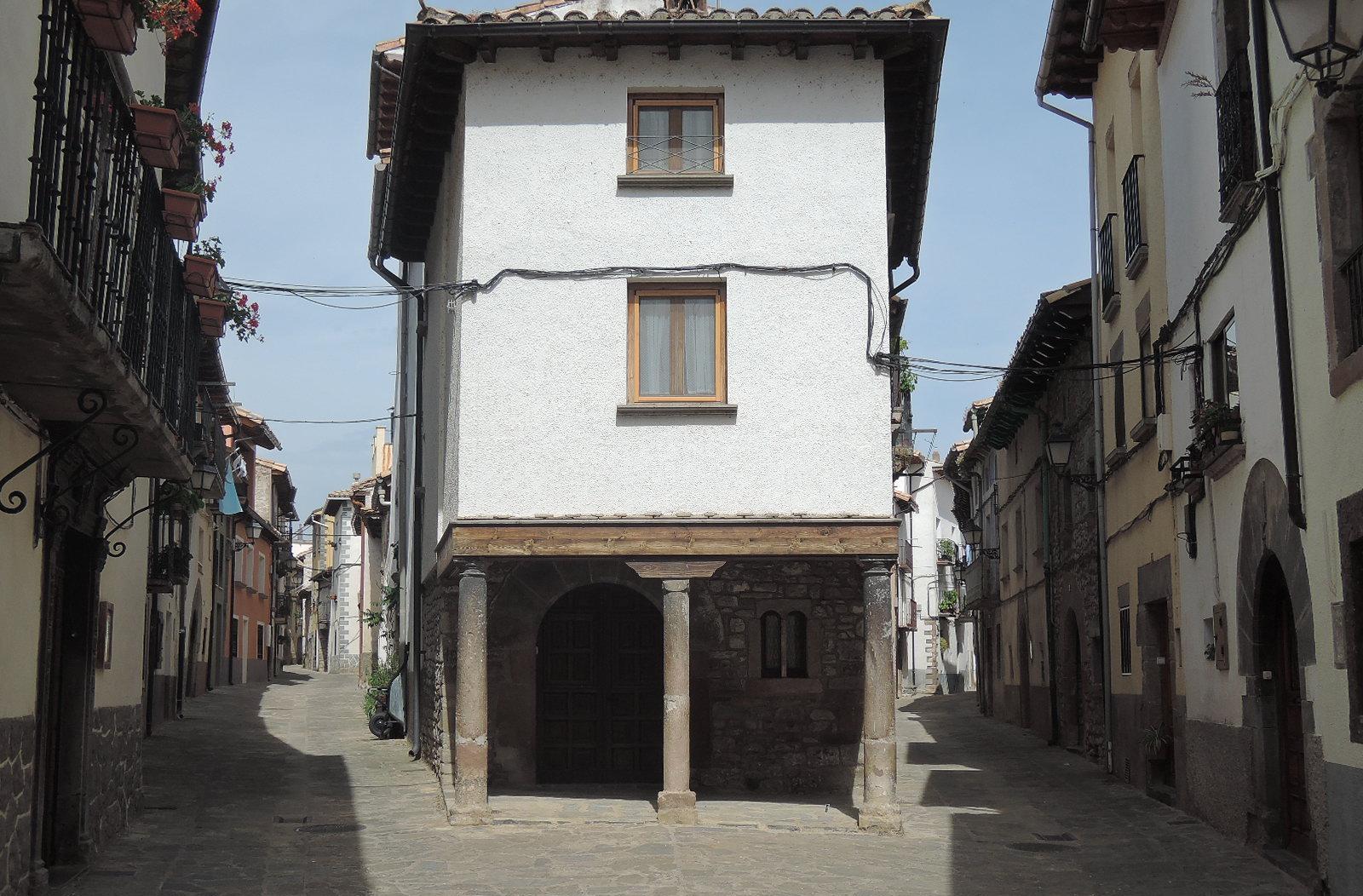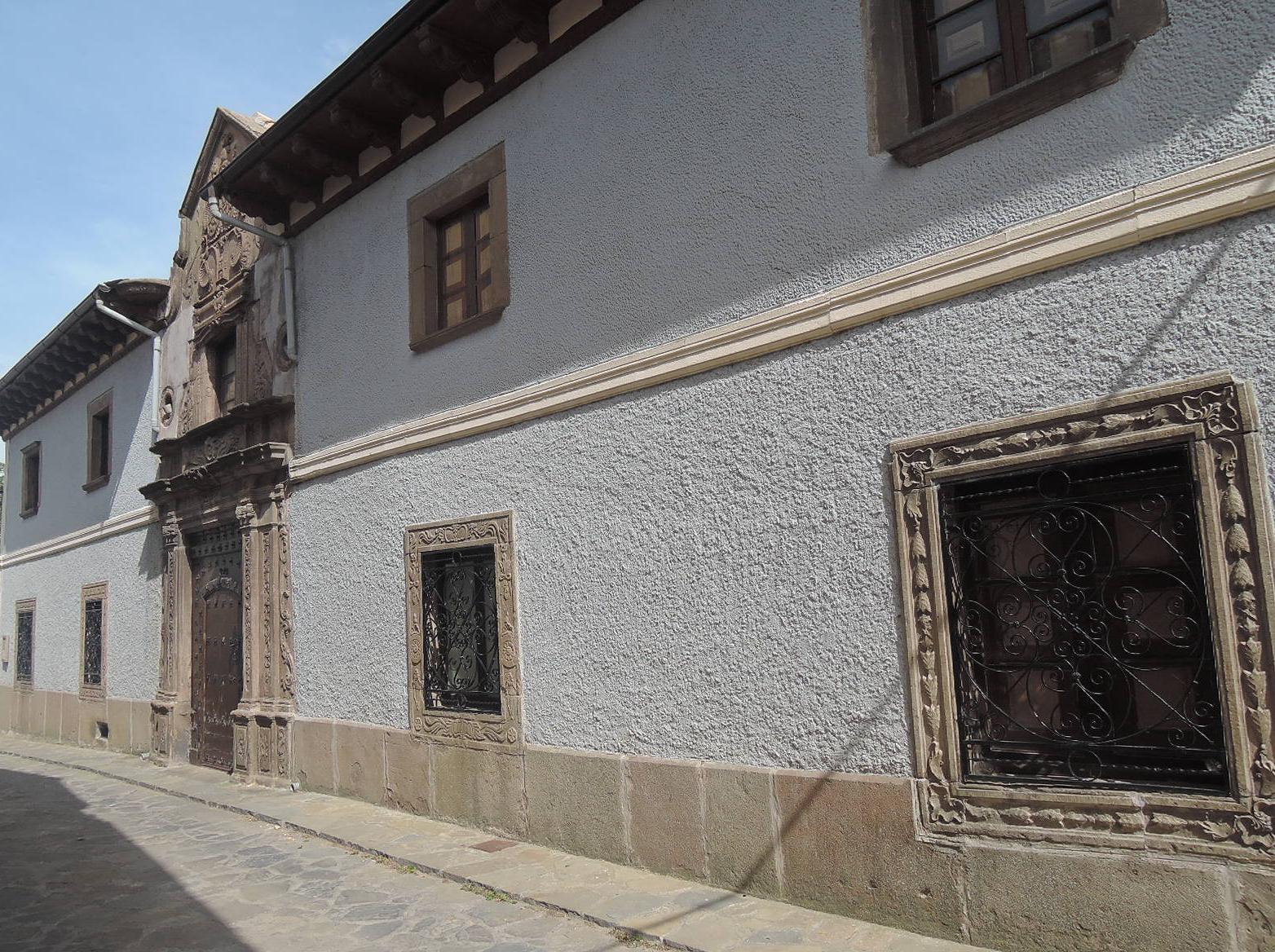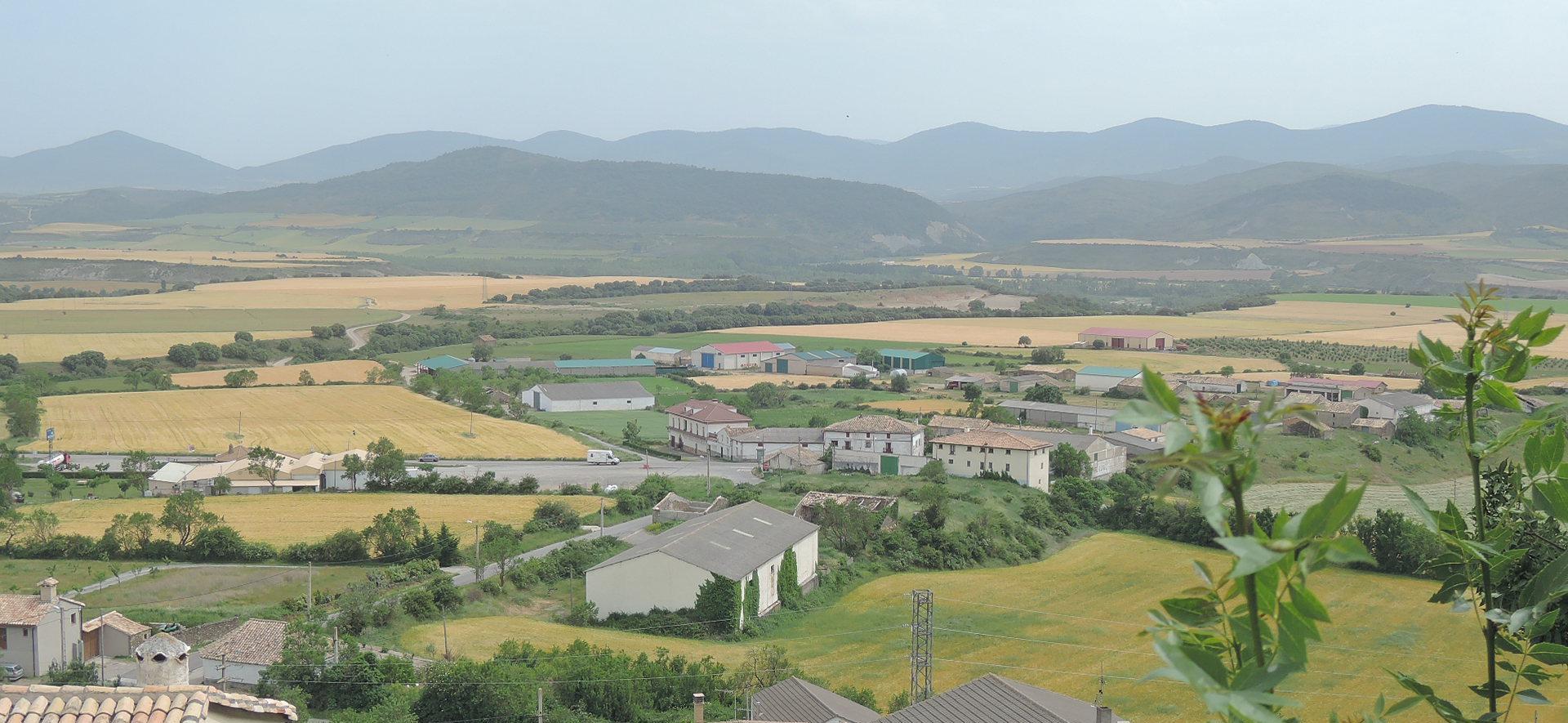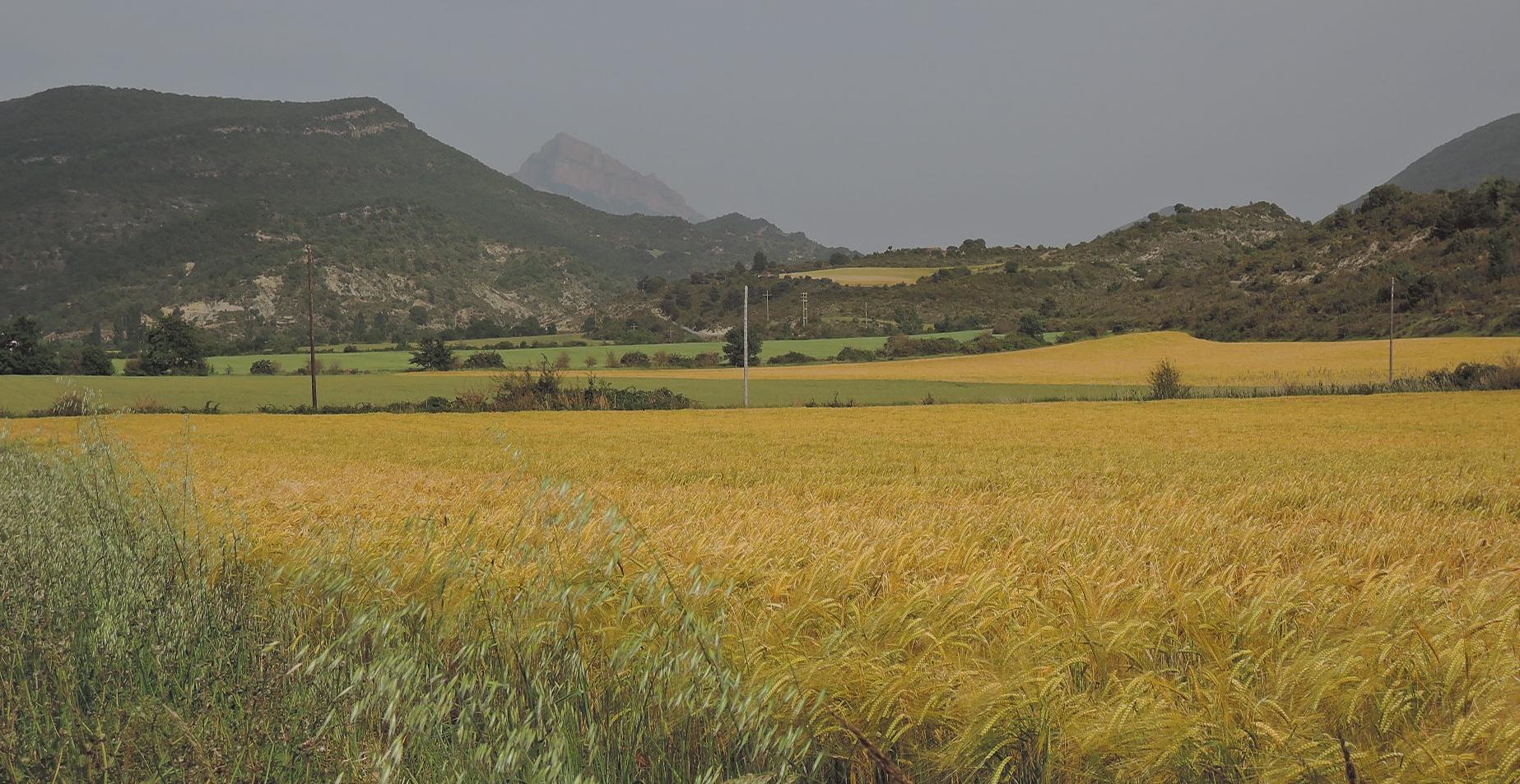There’s only one hundred fifteen kilometres from Olite to Jaca, but it took me a whole day’s ride. I travel slowly and I stop wherever my eyes and my heart take me. Or – well – kind of: the places I’m passing by are so beautiful, each deserves a separate chapter in my notebook; they’re a gift to behold, and a true balm for the spirit; moreover, there are so many of them, if I actually stopped in each one my sight fancies, my life would not last to know and describe them all. A little away from Olite to the northeast, the ground begins to undulate, the bike smiles to the road bends, and the samples start of Navarre and Aragon villages that I’ve been lucky or wise enough to come through. There you have San Martín de Unx, with a strong romanesque heritage, built on stone over the stone, on top of a ridge and towering above a pleasing countryside; with its three churches, its blazons and Castilian irons. Fine wines here, too.
There you also have Lerga, a modest tiny village very few people will have heard of except its neighbours, but that can rival in appeal with the best. Charming church, wide streets full of light, robust emblazoned houses and a neat market square.
Or Eslava, climbing up a hill and looking out South.
Sangüesa is a better known city: the main township in the area, on the banks Aragón river, sometimes flooded by it. I took a break there for some wine and tapas in any of the many and appealing bars along its lively Mayor street and neighbouring ones inside the old town. There was a street market under the shady arches of the townhall, it looked like a medieval picture.
But by far the site that captivated me this day was one of those not on the maps: taking an narrow by-road, yet hidden and underhand, barely signaled after a detour, unnoticed even by a watchful driver, there is a bizarre place called Javier. On the slope of a hill, facing a delightful wooded valley, dashing among the green fields arises the Castle of Javier, so named because it was the birthplace of St. Francisco Javier. Nearby: two convents, a basilica, a closed restaurant and a hotel; that’s it. A striking and amazing set, so beautiful and lost. Like a little divine Arcady, making me wonder: what are these buildings doing here? They may have their little secret … or may not; but it’s better not to know, so as to be kept in my memory with the charm of the unknown and the remote.
Coming out of the valley back to “civilization” you arrive to Yesa and connect with the scenic road N-240, called the Pyrenean axis, right where it begins to skirt the Yesa reservoir, plenty of awesome views of which I didn’t photographed a single one because I chose to enjoy the bike on the road corners. Well, I actually stopped once for getting to the reservoir shore and washing away the sticky heat of that sultry day by taking a bath in the lake, after which I felt a brand new bum.
On a more prosaic and “earthly” environment, among fertile farmlands there is Berdún, standing on a rocky ridge that has resisted millions of years of erosion. We are now in Huesca province, Aragon (well – supposing Huesca belongs to Aragon at all; I’ll say why in due time). Berdún is one of those pretty towns from beginning to end, any way you may look at it; with its outstanding location, its medieval wall remains, its houses stooping over the plain, narrow streets connected by alleys and passages, tasteful tiny market square and a number of notable houses, making for an amusing tour.
I stayed a good while in Berdún, discovering the village and taking pictures; and I’d have wilfully stayed overnight there had been any vacancies in the only hostel in town. But there weren’t, so I had to continue trip until Jaca, the road running among magnificent golden wheat fields, about which (the wheat) I’ve already written somewhere that there isn’t a nobler and most beautiful cereal on the planet.
In Jaca it was easy to find accomodation, and I was getting inside the hotel right in time for sheltering from the thunderstorm. One minute later and I’d be soaked. Afterwards, when it cleared up, I explored the city just to find out it is one of the best places for wines and tapas, ever. A true paradise, which made for a perfect end of my day trip.

